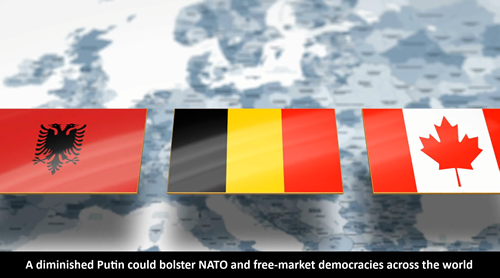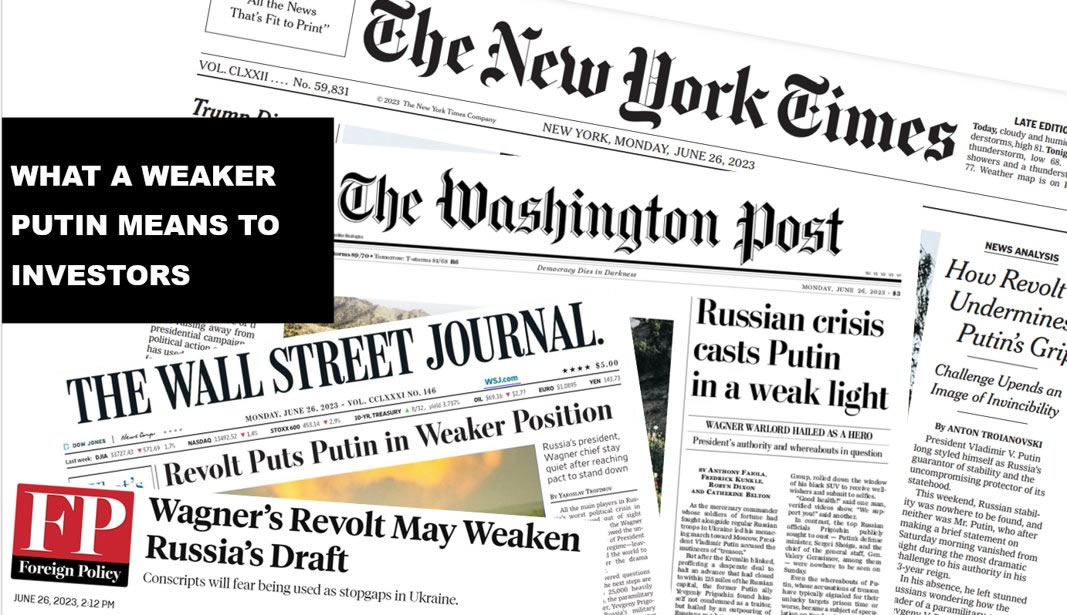The failed coup attempt in Russia leaves Vladimir Putin weakened. A diminished Putin is a less reliable partner for China, less of a military threat to Ukraine, and less of a menacing disruptor across the world. Russia’s decline could help spark a U.S. economic boost, like it did 32 years ago, when the fall of the Soviet empire ushered in a long period of American prosperity. The Russia situation today seems a lot like the end of the Cold War.
By August 18, 1991, when President Mikhail Gorbachev of the Union of Soviet Socialist Republics, was placed under arrest at his dacha in the Crimean resort of Foros, the Soviet Union had already begun to come undone. On December 31st, 1991, the Soviet Union officially was dissolved and replaced by 15 independent countries.
The fall of the Soviet Union changed the world materially: Germany was reunited, Ukraine declared its independence, and the U.S. became the uncontested world’s dominant superpower. The fall of the Russian empire helped kick off an era of prosperity in the United States that spanned the entire 1990s. Apart from the 11-year expansion before the pandemic, the period was the longest boom in modern U.S. history.
It is possible that a diminished Putin or his successor could make Russia more desperate and pose an even more terrifying threat as an unstable nuclear power. Putin could be more willing than ever to back corrupt brutal dictators, as he did recently in Syria, Libya and Mali.

However, if history is a guide, a diminished Putin could strengthen America’s hand in dealing with China’s expansionist aspirations, bolster NATO and free-market democracies, and restore confidence in a geopolitical world order based on rules -- the system backed by the United States since the end of World War II.
Putin’s setbacks come as U.S. companies are leading the world into adoption of generative artificial intelligence. AI is expected to boost the growth of the U.S. economy materially in the next decade. The history of government collaboratively regulating business makes the U.S. uniquely suited to lead introduction of generative AI. This technological advance could be more impactful than the introduction of the world wide web in the U.S. in the early 1990s.
It’s like the fall of the Soviet Empire is happening all over again; only this this time, investors have the benefit of lessons from the recent past.



